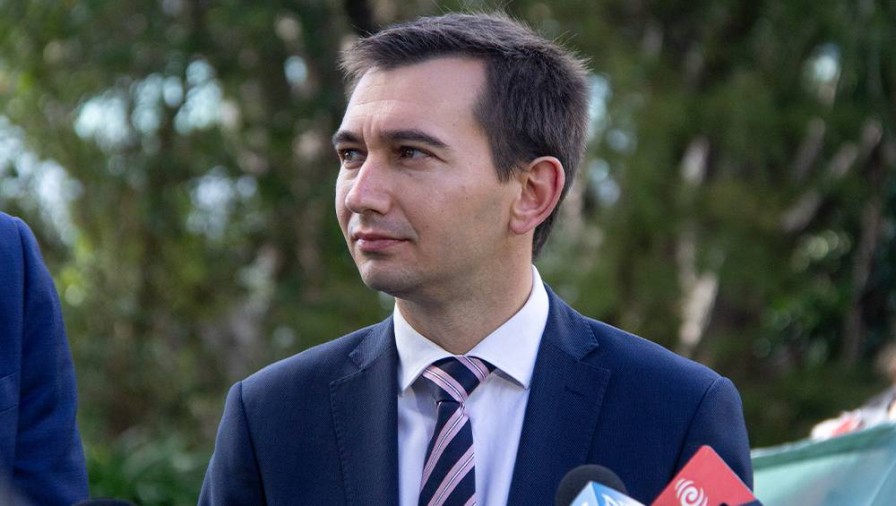It’s the economy stupid, local rates, fast track, the Treaty
The expectation now is that the Reserve Bank will make another big cut to the OCR in February.
WATCH: NBR political editor Brent Edwards speaks with Simon Shepherd.
The expectation now is that the Reserve Bank will make another big cut to the OCR in February.
WATCH: NBR political editor Brent Edwards speaks with Simon Shepherd.
In a week in which government ministers might have been looking forward to a break, their Christmas cheer was dulled by grim economic news.
First, the Half-year Economic and Fiscal Update released on Tuesday showed the economy in a worse state than the Treasury had forecast in the May Budget and the public finances reflected that reality, with a return to surplus put off for at least another couple of years.
Then the double whammy. Just two days after the Treasury forecast the economy had contracted by 0.1% in the three months to the end of September, Statistics New Zealand released the GDP figures for the quarter showing it had slumped 1%. It followed a revised 1.1% contraction in the June quarter, confirming the economy was in a deep recession.
If there is any silver lining to those dismal numbers, it is surely that they can only get better. The Treasury is forecasting a recovery on the way, with growth next year. But, given its dismal forecasting record, can the Government be confident that is the case?
Finance Minister Nicola Willis rejects accusations from the Labour Party that government spending cuts and a pause on infrastructure investment has helped make the recession worse. She blames Labour’s financial management for handing the coalition Government an economic mess.
The latest GDP figures, though – after revisions – show the recession only started this year, with the economy growing in 2023. In the last half of 2023, economic activity did start to stall, though, with no growth in the three months to the end of September last year and just 0.3% growth in the December quarter.
The economy has then really struggled this year as the effects of the Reserve Bank’s earlier interest rate hikes began to bite. The expectation now is that the Reserve Bank’s monetary easing – it has cut 125 basis points off the official cash rate since August – will start to foster more growth as business interest rates fall and homeowners refix at lower rates. The OCR is set to come down substantially again in February following this week’s bad news. That too should provide a silver lining of sorts for the economy.

The recession is worse than the Treasury forecast.
Meanwhile, in its Budget Policy Statement, the Government has signaled more spending cuts to come but says it will increase spending on health, education, and the police. Willis says it also has a responsibility to invest in infrastructure, although the spending increases in the next few years will not be as sizeable as those under the previous Labour Government.
Those people earning the minimum wage also have no reason to celebrate after Workplace Relations and Safety Minister Brooke van Velden announced the minimum wage would rise by just 1.5% on April 1 next year. That is in line with the coalition Government’s commitment to raise the minimum wage each year but only by modest amounts, after it had risen sharply under the previous government.
Van Velden says by limiting the increase in the minimum wage, it ensures young people will be able to get work and that businesses can continue to grow and provide employment opportunities.
“The New Zealand economy is still recovering from a sustained period of high interest rates and recessionary conditions. In that context, delivering a modest increase in the minimum wage strikes the right balance between supporting workers and limiting further costs on business,” she says.

Workplace Relations and Safety Minister Brooke van Velden.
Earlier in the week, the Government also announced reform aimed at reining in rates increases imposed by local councils.
It will remove the four well-beings – social, economic, environmental, and cultural – from the Local Government Act 2002 and require councils to focus on the basics of fixing pipes, filling potholes, and delivering core local services.
The Department of Internal Affairs will also publish an annual report comparing councils’ performances on key financial and delivery outcomes. The first one will be published before next year’s local body elections and will focus on rates, council debt, capital spending, council budgeting, and the state of local roads.
At the post-Cabinet news conference on Monday – the last for the year – both Local Government Minister Simeon Brown and Prime Minister Christopher Luxon were adamant that local councils had to show the same discipline around spending as central government, households, and businesses.
For a government that has strongly promoted the idea of localism, it has not been reticent about telling local government how it should behave.
But Local Government New Zealand welcomed the announcement and said it wanted to work with the Government to ensure benchmarking and performance measures gave a full and accurate picture to the community.
LGNZ president Sam Broughton also supported the changes being made to the legislation to remove references to the four well-beings
“Rates can’t continue to increase at the levels we have seen recently, and councils want to be held accountable by ratepayers for every dollar they collect,” Broughton says.

Local Government Minister Simeon Brown.
In its last sitting week of the year, Parliament passed the contentious Fast-track Approvals Bill, which will pave the way for large projects to be built sooner. Willis expects this will give the economy a boost as large projects – that have previously been held up by existing resource management regulations – start to come on stream. She says those projects will involve huge spending in communities and create employment.
“That is a positive, tangible thing that we are doing,” Willis says.
Then Luxon ended the week by announcing he will not be going to Waitangi in February for Waitangi Day celebrations, instead spending his time at another venue, which is yet to be named.
It is likely he wants to avoid any heated debate over the Treaty Principles Bill but said in a statement it had always been his intention to celebrate Waitangi Day around the country with different iwi.
Luxon might avoid the debate at Waitangi, but it is likely ongoing arguments about the Treaty Principles Bill will dominate much of the political debate in the early part of next year until it comes back from select committee and National and New Zealand First then vote against it.

Prime Minister Christopher Luxon.
The economy will also overshadow much of next year, with borrowers probably looking forward to the Reserve Bank’s first review of the official cash rate on February 19. The only question now is, will the bank cut the OCR by 50 or 75 basis points.
The Government will be counting on a big cut and on lower interest rates producing a more positive economic outlook in 2025. So, too, will households and businesses.
Beehive Banter is hosted by Simon Shepherd, with NBR’s political editor Brent Edwards.
This column will take a break over Christmas and return in late January.